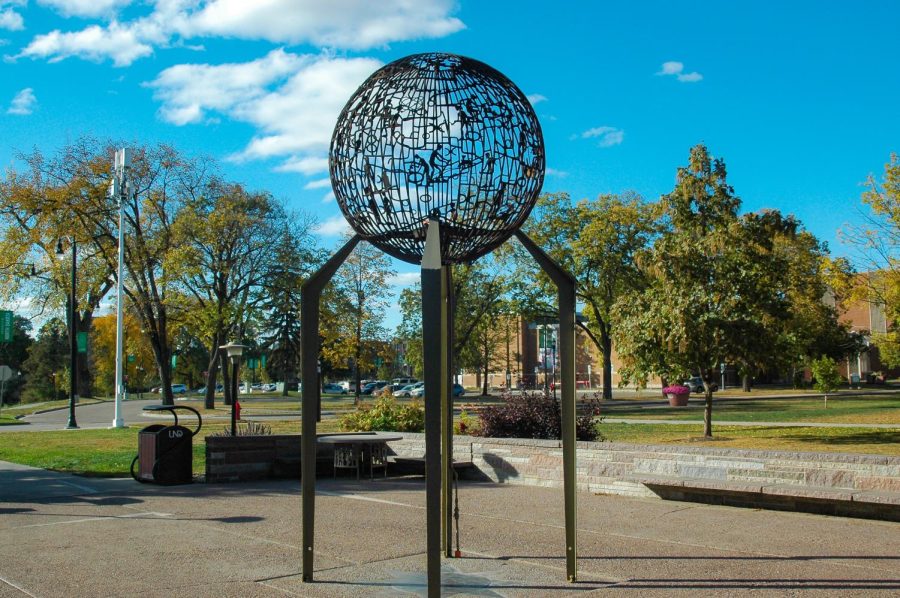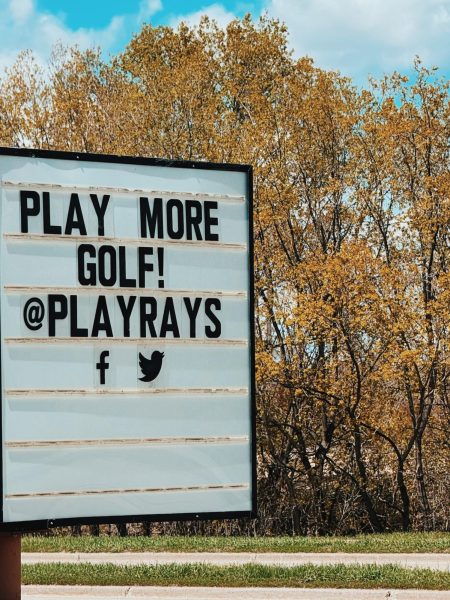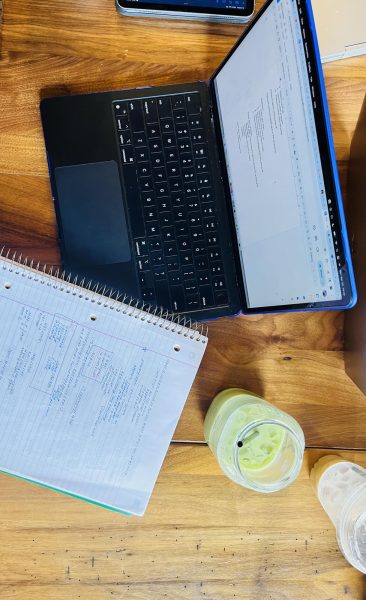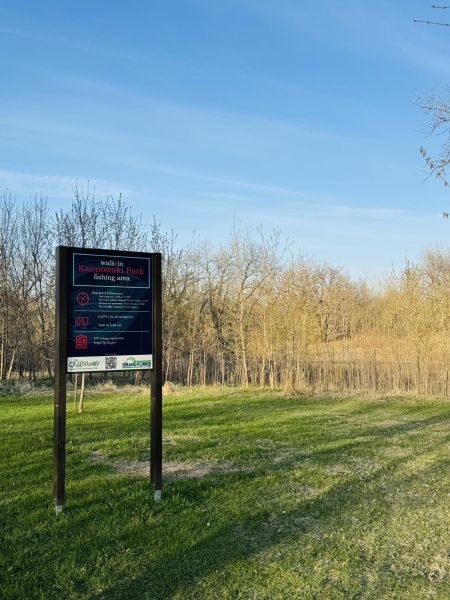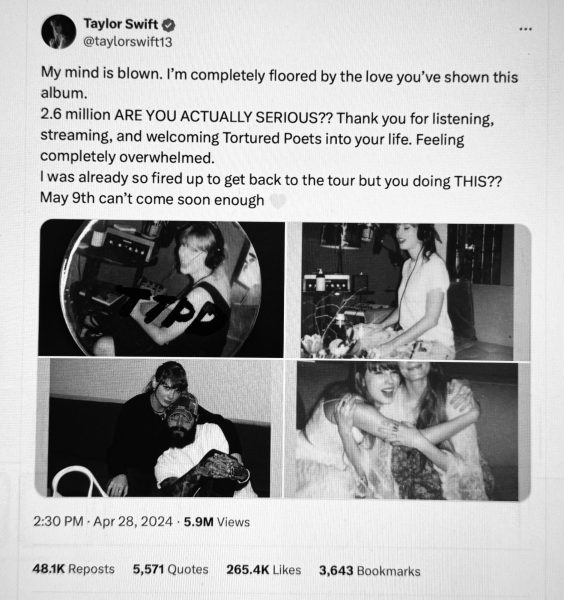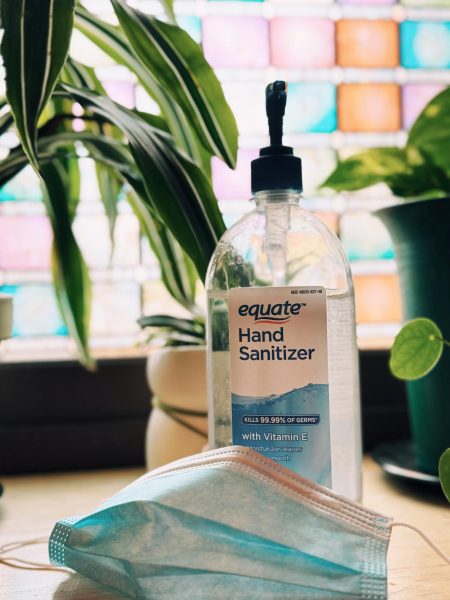From Doctor to Writer
My journey to becoming an English major
November 2, 2022
In high school, I remember telling my 12th-grade English teacher, “I would never get a degree in English.” He told me I was excelling in the class, engaging – something that was rare for me in high school – and just having a good time. I denied this. In reality, I was having a great time reading “A Street Car Named Desire,” and analyzing Blanche and Stella’s dynamic as sisters, but I made it clear to him and all my other English teachers growing up, that I would go to college, major in psychology, and become a physician’s assistant, which is just a fancy way of saying a doctor without a PhD. The fact of the matter was, as I was told a million times growing up, you cannot get a career out of a humanities degree.
I grew up in Champlin, Minnesota. The schools within my vicinity were exclusively science and math schools. I went to an elementary school specializing in math and environmental science. My middle school proclaimed to be a “specialty school for math and science” and my high school ran an International Baccalaureate program, which I still have no idea what the point of this was but it sucked. I grew up surrounded by the influence of a STEM career. STEM also partnered up with Girls in Science, a program that took girls on trips to colleges where you would do science experiments and eat at the college dining center. The only reason we girls would go was to get out of school and stuff our faces at the buffet. They also offered specialty classes at surrounding technical colleges. My parents encouraged me to go into a health career from a young age, and for a long time, I thought that was what I wanted to do. My mother is a surgical technician, and my dad does something with heart monitors. My household was always pro-STEM.
When I am referring to STEM, I am talking about science, technology, engineering, and math. It is important to note that STEM and the humanities work hand in hand. They work together to form conclusions and solve problems. Ideally, students from either major should be encouraged to take a variety of courses from each other. However, over time society has sought to split them apart. From Study Break, writer Madison Feser notes the decline could have been due to the great recession. They note, “between 2009 and 2015, the number of STEM majors in bachelors and above programs grew by 43%, while humanities declined negative 0.4%.”
When I became a student at UND, my first major was Psychology with an emphasis on Pre-Physician Assistant. I was in the pre-health group chat and was enrolled in math, biology, chemistry, and psychology classes, and like many others in my class, we maintained our grades and sanity in the fall of 2020, which was in the middle of the Covid-19 pandemic. Being a freshman during this time was very depressing. It was towards the end of my freshman year, in the spring of 2021 when I realized that I hate science. I did not care for significant figures or chemical reactions, and although I do love aspects of these classes, I did not feel passionate enough to continue. As many health majors know, the next class following CHEM 121/122 is organic chemistry. A class everyone hates, and if you like this class, I am sorry.
The one class that held my attention during this time, and kept me engaged was ENGL 110. My professor really inspired me, and I know this graduate assistant teaching a class over zoom at eight in the morning might not be in the mood to inspire students, but the class made me realize how much I love English. I love analyzing stories and media and figuring out what hidden meanings they have. I love to read and write, and I prefer a ten-page essay to a multiple-choice test.
So with my parent’s permission, and to their dismay, I became a general studies major, which is a good thing to do when you are trying to figure out what you want to do with your life. I took a creative writing class, intro to business, public speaking, and a women’s studies class. Literally just trying to get a taste of all the classes I could take or the person I could become. After a month into the semester, I realized then that I would become an English major, and with that, I was screwed. I had always been the daughter who would grow up and become a doctor. I was supposed to be the successful dermatologist who would take her family on lavish vacations and put her parents in a nice nursing home. I remember getting a call from my parents when I told them my decision over text. My dad was more confused than upset, but I remember him asking me what I would do with an English degree. I remember my mom saying that I would not make any money. They asked me what I wanted to do, and I did not know.
After this call, I heavily doubted my choice. I thought I had just ruined my entire life. After I had googled, “what can you do with an English degree,” I was in a better place. There are actually many things you can do with an English degree. You can become an editor, go into digital and book publishing, grant writing, and one of my favorites, crossword puzzle makers. I could also go to law school and become a lawyer, which made my parents feel better about my decision, but I did not plan on going to law school. If my parents ask though, I am. I started writing both creatively and technically. I even get paid money to do what I love. Writing, researching, and just expressing myself. I got a poem published, started working for an online blog, got a job at the library, and started working for the school’s paper, Dakota Student.
STEM and the humanities have worked hand in hand throughout my life to teach me and guide me through my education. I do not regret my journey to my major, but I do regret the influence that was pushed onto me from an early age. That is not to say that I despise all STEM majors, but I just wish that I was able to figure out my true passion early on rather than finding out “late in the game.” College is about figuring out who you are and what you want to be. We are often encouraged to figure out what we want to do in high school, declare our majors, and stick with it for the rest of our lives. I do not know about the rest of you all, but I was an idiot in high school. It is unrealistic to have our whole lives planned out from the age of seventeen, so if you are deciding to switch majors, do not be hard on yourself. Do what makes you happy. Do what you want to do. And maybe take an English class.
Claire Arneson is a Dakota Student Editor. She can be reached at [email protected].


